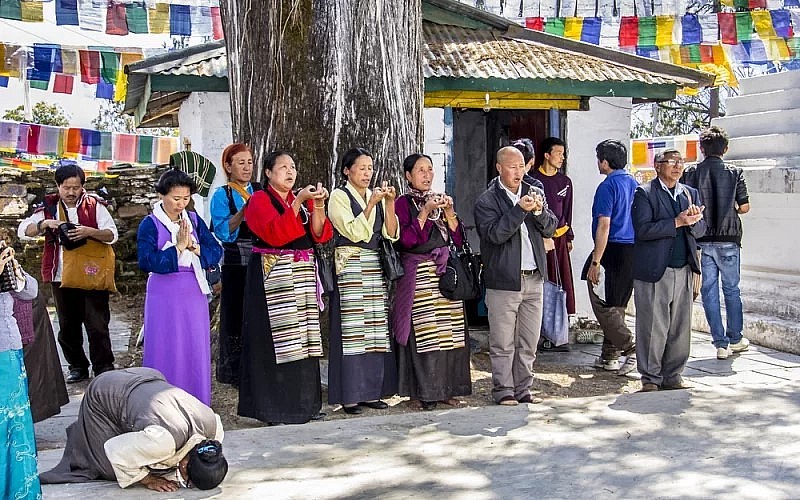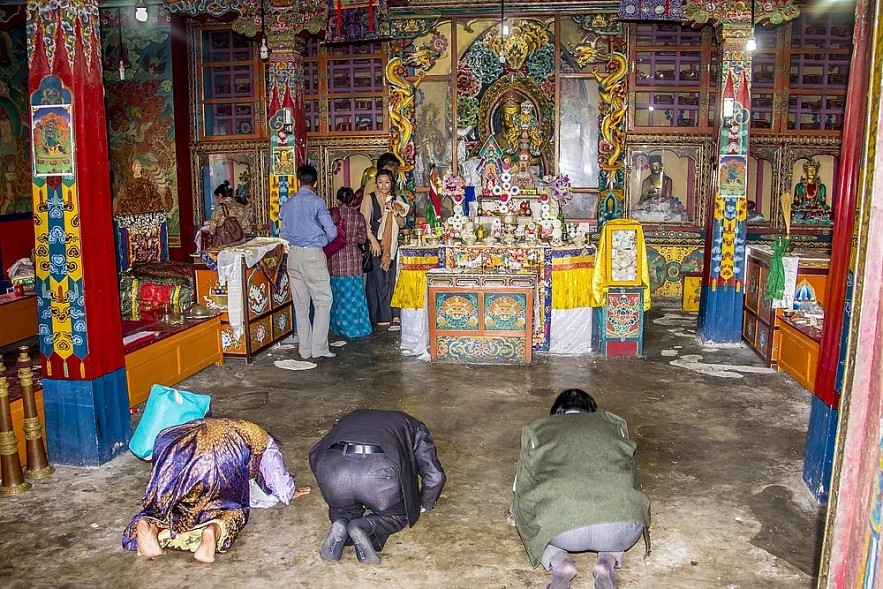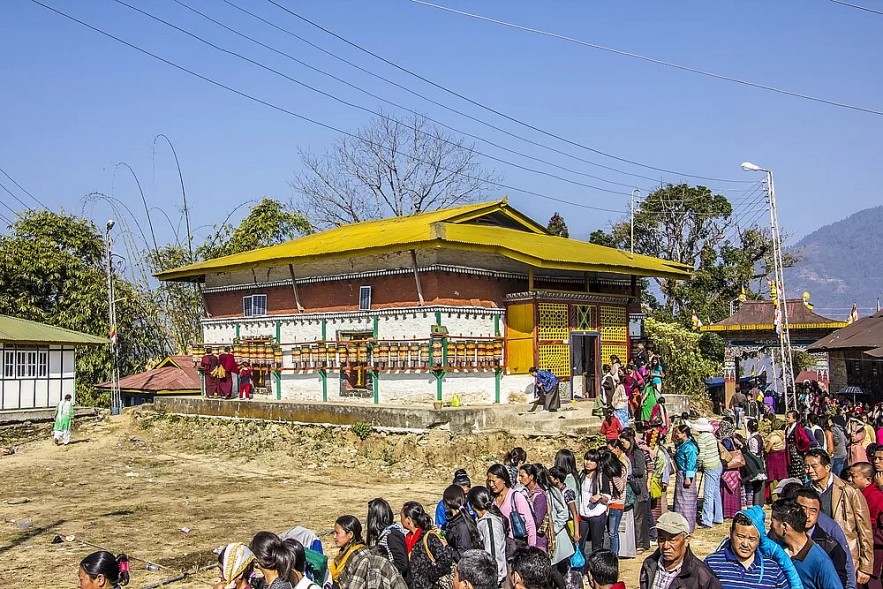 |
Bumchu, the blessed water vase ritual of Tashiding, is a unique and significant event that attracts pilgrims from all over the world. This ancient ritual is performed annually at the Tashiding Monastery, located in the western part of Sikkim, India. The origins of Bumchu can be traced back several centuries ago and have a fascinating history behind them.
 |
| One of Sikkim’s most major festivals, the Bumchu festival is a significant occasion for the state’s Buddhist population. The celebration, which has been observed for generations, is a wonderful chance for people to gather together and celebrate their heritage and culture. |
The Tashiding Monastery is one of the most sacred Buddhist pilgrimage sites, located on a hilltop overlooking the Rangeet River in Sikkim, India.
According to legend, Guru Padmasambhava, also known as Guru Rinpoche, the great Buddhist master who introduced Buddhism to Tibet, blessed the site of the monastery during his visit to Sikkim in the 8th century. The monastery was later established in the 17th century by Ngadak Sempa Chempo Phunshok Rigzing, a Nyingma master.
The Bumchu festival is associated with a miraculous event that occurred during the reign of Chogyal Chakdor Namgyal in the 18th century. According to the legend, a Lama was instructed by a deity to go to a nearby spring and collect water in a vase. The Lama did as instructed and discovered that the water level in the vase never decreased, no matter how much water was used. The Lama realized that the vase was sacred and that the water inside it possessed healing powers. The vase was brought to the Tashiding Monastery, where it was enshrined and became the focus of the Bumchu festival.
 |
| It is said that monks make predictions for the year by studying the level of water in the pot. If the vase is full, the year shall be prosperous. If low, famine is imminent. When dusty, an ominous year of strife and discord is predicted. |
The word “Bumchu” means “pot of sacred water.” During the festival, the vase is opened, and the water inside it is distributed among the devotees. The water is believed to have curative properties and is said to bring good luck and prosperity to those who drink it. The festival is held on the 14th and 15th day of the first lunar month, which usually falls in February or March.
The Bumchu festival is a time of great joy and celebration in Sikkim. Pilgrims from all over India, as well as from neighboring countries like Bhutan, Nepal, and Sri Lanka, come to Tashiding to participate in the festival. The festivities include traditional music and dance performances, colorful processions, and elaborate rituals. Monks and nuns perform sacred ceremonies and recite prayers, and offerings are made to the deities.
The Bumchu festival is not just a religious event; it is also an important cultural festival that reflects the unique heritage of Sikkim. The festival provides an opportunity for people to come together and celebrate their traditions and customs. The Bumchu festival is a reminder of the deep spiritual roots of Sikkim and the enduring faith of its people.
The Bumchu festival is a significant event in the cultural and religious calendar of Sikkim. The festival has its roots in the ancient history of the Tashiding Monastery and is associated with a miraculous event that occurred centuries ago. The festival provides an opportunity for pilgrims to seek blessings and healing from the sacred water of the Bumchu vase. The Bumchu festival is a unique and vibrant celebration of Sikkim’s rich cultural and spiritual heritage.




